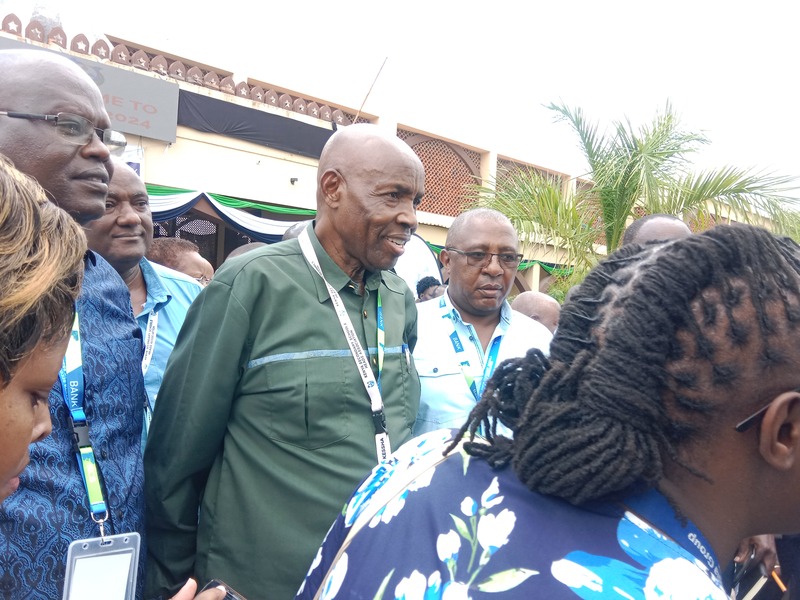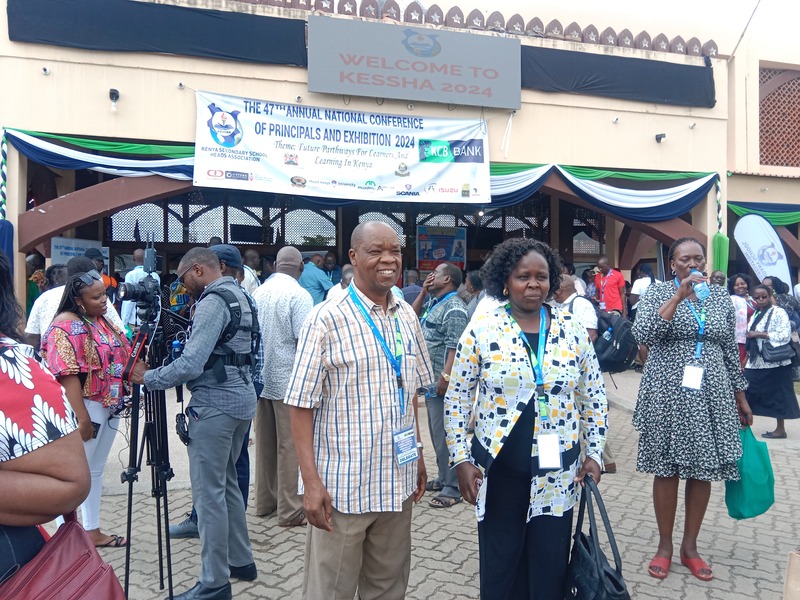Junior secondary to remain under primary schools despite principals' plea

Machogu stated that the decision was made by the Presidential Working Party on Education Reforms.
Education Cabinet Secretary Ezekiel Machogu has affirmed that junior secondary schools will continue to operate under primary schools despite requests from principals to split the newly introduced structure.
Addressing the press after the closure of the five-day annual Kenya Secondary School Heads Association conference, Machogu stated that the decision was made by the Presidential Working Party on Education Reforms.
More To Read
- TSC announces recruitment of 9,159 teachers nationwide
- 2025 KCSE concludes smoothly as government reports sharp decline in exam cheating cases
- Education Ministry pledges early capitation release for smooth start to new term
- Tension mounts as school heads, teachers’ union reject new TSC leadership structure
- 78 people arrested over exam malpractice as KCSE enters final stretch
- TSC calls on teachers to embrace professional development for CBE curriculum
The 47th conference was attended by approximately 7,000 headteachers from across the country. This year's theme was "Future Pathways for Learners and Learning in Kenya."
"If you look at the basic education infrastructure program of 2017, it was subjected to stakeholders, including the Presidential Working Party, which concluded that we should domicile junior secondary schools in the existing primary schools," said Machogu.
He added that there is minimal time to implement reforms, considering that the second school term is almost over.
"We are almost in July. There is no way we can make changes now. The only arrangements we can make are constructing the necessary number of classrooms to accommodate grade 9 next year," noted CS Machogu.
 Head teachers outside Sheikh Zayed hall where over 7,000 head teachers across the country had congregated for the 47th annual conference. (Photo: Mishi Gongo)
Head teachers outside Sheikh Zayed hall where over 7,000 head teachers across the country had congregated for the 47th annual conference. (Photo: Mishi Gongo)
Mwanahamisi Omar, principal of Mama Ngina High School, suggested that the government use the empty form one classrooms, which will not be in use next year.
"Grade 9 can be placed in secondary schools to occupy the form one classes. There, the children will receive quality learning due to the availability of key infrastructures," she suggested.
On Thursday, school heads had pleaded for grades 8 and 9 to be placed under secondary schools while grade 7 remains under primary schools. They argued that secondary schools have existing infrastructure, such as laboratories, which primary schools lack. They expressed concerns that the lack of equipment in primary schools would hinder effective learning for grades 8 and 9.
KESSHA Chairman Willy Kuria acknowledged that while they prefer grades 8 and 9 to be in secondary schools, they will adhere to the government policy.
"Although the principals want a split between primary and secondary, we have to accept the government policy for now," he said.
Junior secondary was introduced under the competency-based curriculum (CBC). Initially, the Basic Education Curriculum Framework placed junior secondary in secondary schools, but the government reversed this decision based on recommendations by the Presidential Working Party on Education Reforms.
Aside from the splitting issue, headteachers also lamented the low capitation, given the current inflation in the country. Chairman Kuria noted that some students are not included in the capitation, causing financial struggles for schools.
"Schools face major financial crises. Some children are not given capitation. About 300-400 form one students have not received capitation," said Kuria.
The teachers had pleaded with the government to increase the capitation from the current Sh22,000 per student to Sh27,000. Kuria also called for teachers to embrace the CBC system, which allows students to be solution-oriented.
"Every learner is gifted differently. Let no learner be left behind because of their social standing," he said.
Top Stories Today











































